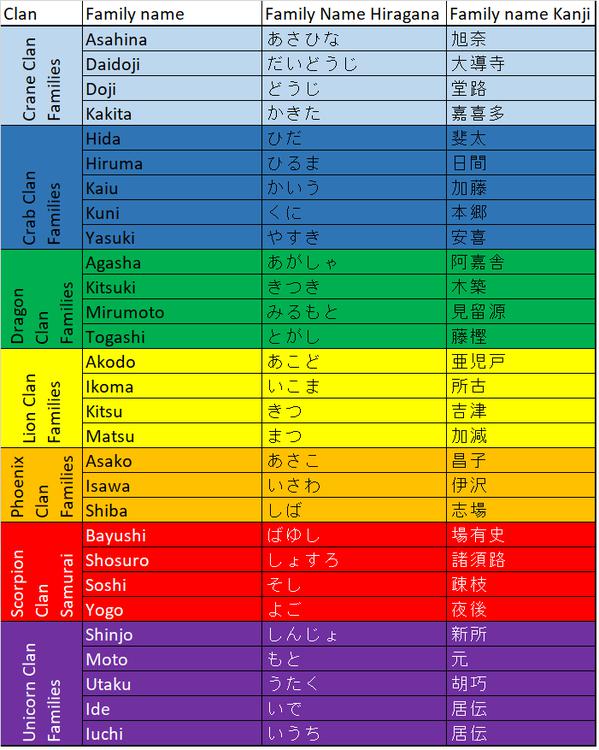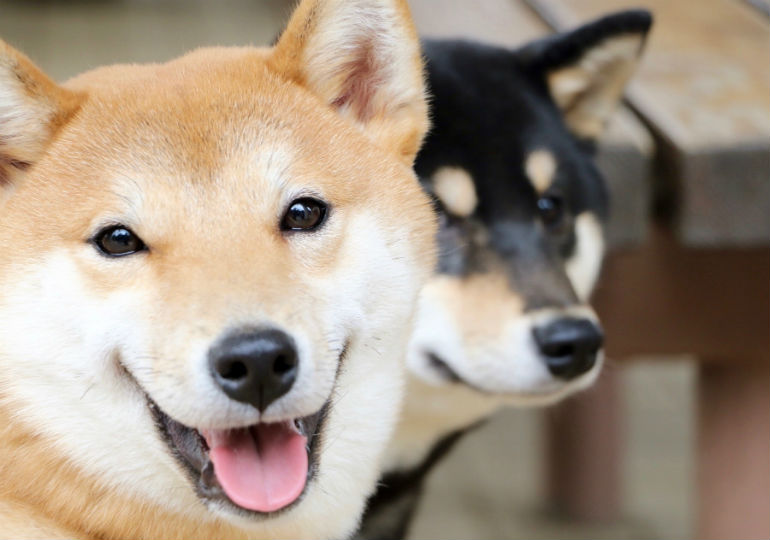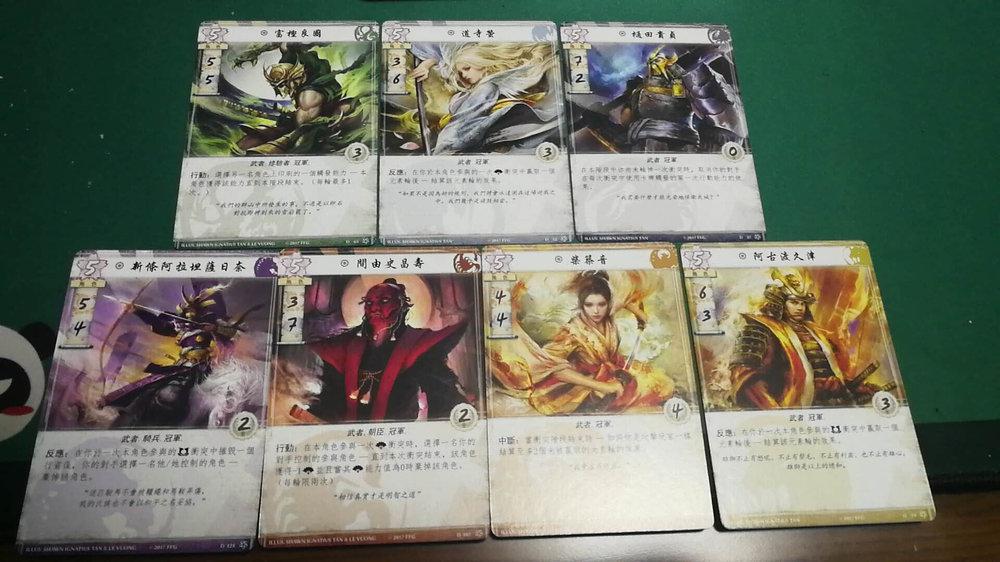So my wife and I have started for fun slowly beginning the process of translating the card game into Japanese (starting with names). Does anyone have access to an L5R card template I could use for seeing how the translated text fits. Still trying to decide weather to just do Hiragana for the names, or do Kanji with smaller hiragana above it. One of the names did have to be changed slightly so far, specifically the Doji (どじ) name as the name (and thus the Kanji) means clumsy. Our big change to it was lengthening the O sound so now in romajii it would be written as Douji (どうじ) . If anyone is willing to help with this fan project I greatly appreciate it as well.
You will also find attached a picture of the names so far and how we have started to translate them.
Additional Information



